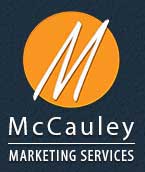Frequently Asked Questions about Search Engine Optimization
 Q. I’ve always used SEO and SEM interchangeably. What’s the difference?
Q. I’ve always used SEO and SEM interchangeably. What’s the difference?
Search engine optimization (SEO) is actually a subcategory of search engine marketing (SEM), but SEO is not the same as SEM. SEM is a type of internet marketing that increases a websites visibility in search engine result pages (SERPs). One way to increase visibility is through search engine optimization. SEO improves a websites ranking in organic (unpaid) search results to increase the site’s traffic. SEM utilizes SEO as well as paid placement (i.e.-paid inclusion, contextual advertising, pay-per-click advertising, etc.).
Q. What are meta tags and are they important?
Meta tags are HTML code placed in a webpage’s “head” area to give search engines information about a website. Some say that meta tags are no longer used by search engines and believe they are a waste of time; however, we believe meta tags are still important and can effect search engine results. Although some meta tags have become obsolete, meta titles and descriptions are still important to search engines. Meta tags are also useful for installing webmaster tools, as well as telling search engines what pages to crawl, how frequently pages should be crawled, and what pages shouldn’t be indexed.
Q. Explain the difference between “Black Hat SEO” and “White Hat SEO.”
Everyone wants their website to be on the first page of search engine results pages (SERPs), but unfortunately everyone can’t be on page one. When search engines first began ranking results based on content, marketers began finding ways to fool search engines (what is now referred to as “black hat SEO”). Some examples of black hat SEO are keyword stuffing and using white text on a white background to hide content that is crawled by search engines from website viewers. Black hat SEO is not ethical, nor is it a good idea. It’s only a quick fix for websites that aren’t doing well, but eventually, it will cause the website to be blacklisted by search engines. White hat SEO is the only way to go. Although it may take some time, with the help and skill of professional marketers, white hat SEO will boost your website traffic and place you higher in SERPs.
Q. How do keywords affect SEO?
When people search for something online, they type in keywords. By logically incorporating those keywords into your website’s content, it will place you higher on SERPs. As discussed above, using too many keywords (aka- keyword stuffing) can cause search engines to flag your website. It’s important to find keywords that are applicable to your website and to use them in your written web content, without overusing. Placing these keywords in your meta tags will help search engines find your website, but DO NOT USE KEYWORDS IN META TAGS THAT DO NOT APPEAR IN THE ACTUAL WRITTEN CONTENT. This is another form of black hat SEO and will cause your website to be blacklisted.
Q. How do I know I’m using the right keywords?
Keywords can be pretty tricky considering words you would use to describe your products/services may not be consistent with words that the general public would use to find products and services like yours. It is very important to conduct keyword research to find out what people really search. Using accurate keywords not only helps SEO, it also helps ensure that the copy written on your website isn’t too technical for the general public to understand.
Q. Why can Flash hinder SEO?
Reasons why full flash sites hinder your SEO ranking are:
- Search engines cannot easily see or index flash or its content.
- Different content within a flash site does not contain different url’s. There is no way to link individual elements to their own page.
- It’s important that all content is wrapped in a tag so search engines can find it.
- Anchor text / pictures, headlines, bold text, image alt tags, and title tags are not easily included in Flash.
- A majority of flash sites are not user friendly unless they are built with certain content management sites with flash compatible applications or the new HTML5.
- If flash is used tastefully and placed appropriately on a webpage, it can be beneficial—it can capture viewer interest through its aesthetically pleasing and refreshing nature and this is necessary for some businesses. If you decide to use flash, certain rules within the code must be followed in order for it to not harm your SEO.
